Click the “Qianxinan Prefecture Traditional Chinese Medicine Hospital” above to quickly follow us
National Level 3 Class A Traditional Chinese Medicine Comprehensive Hospital Guizhou University of Traditional Chinese Medicine Second Affiliated Hospital Qianxinan Hospital

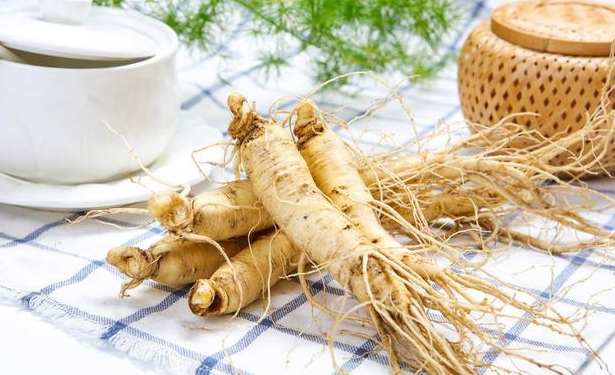
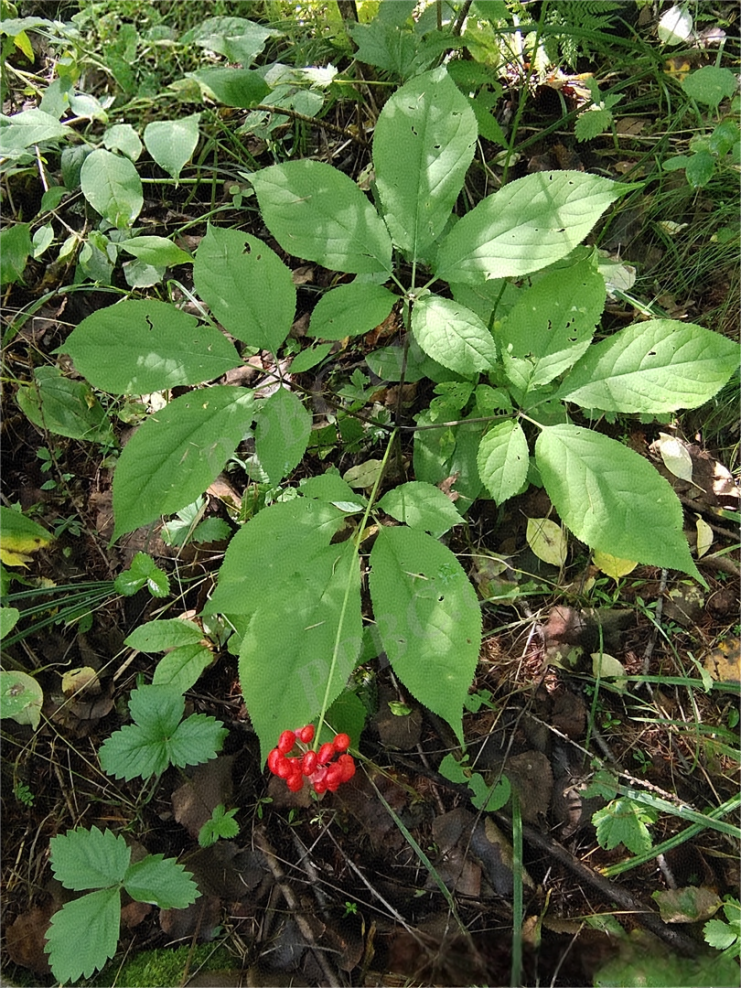
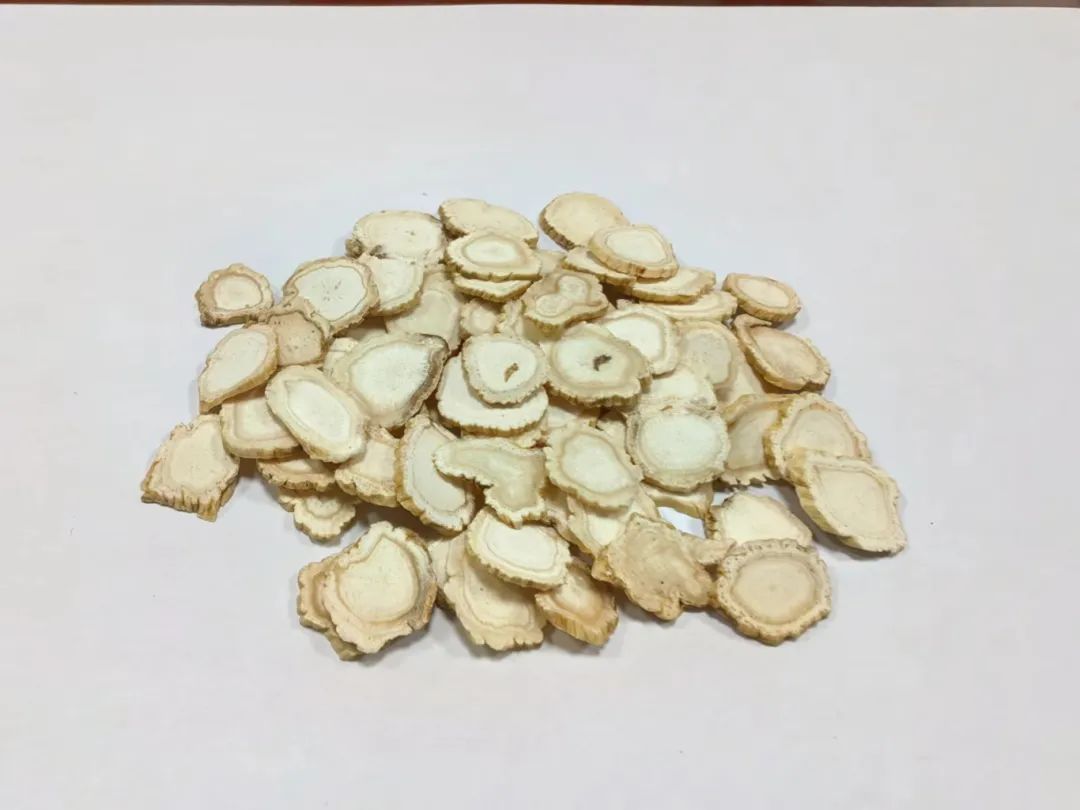
Ginseng (Ren Shen) is the dried root and rhizome of the plant Panax ginseng C. A. Mey., a perennial herb that prefers a cool, moist climate, often growing in mixed coniferous and broadleaf forests or deciduous forests at altitudes of 500 to 1100 meters with small temperature differences between day and night. It is usually harvested in autumn, cleaned, and then sun-dried or dried by other means.
Due to the ginseng’s thick, spindle-shaped root, which often has branches resembling a human head, hands, feet, and limbs, it is named ginseng. Cultivated ginseng is commonly referred to as “garden ginseng”; ginseng that grows naturally in the wild is called “wild ginseng”.
 Processing and Preparation
Processing and Preparation
Clean and sun-dried ginseng is referred to as raw sun-dried ginseng; ginseng that has been blanched in boiling water and then dried in sugar syrup is called sugar ginseng; ginseng that has been steamed and then dried is called red ginseng; and the steamed and dried rootlets are referred to as ginseng root hairs.
 Taste and Properties
Taste and Properties
Sweet, slightly bitter, slightly warm. It enters the spleen, lung, heart, and kidney meridians.
 Functions and Indications
Functions and Indications
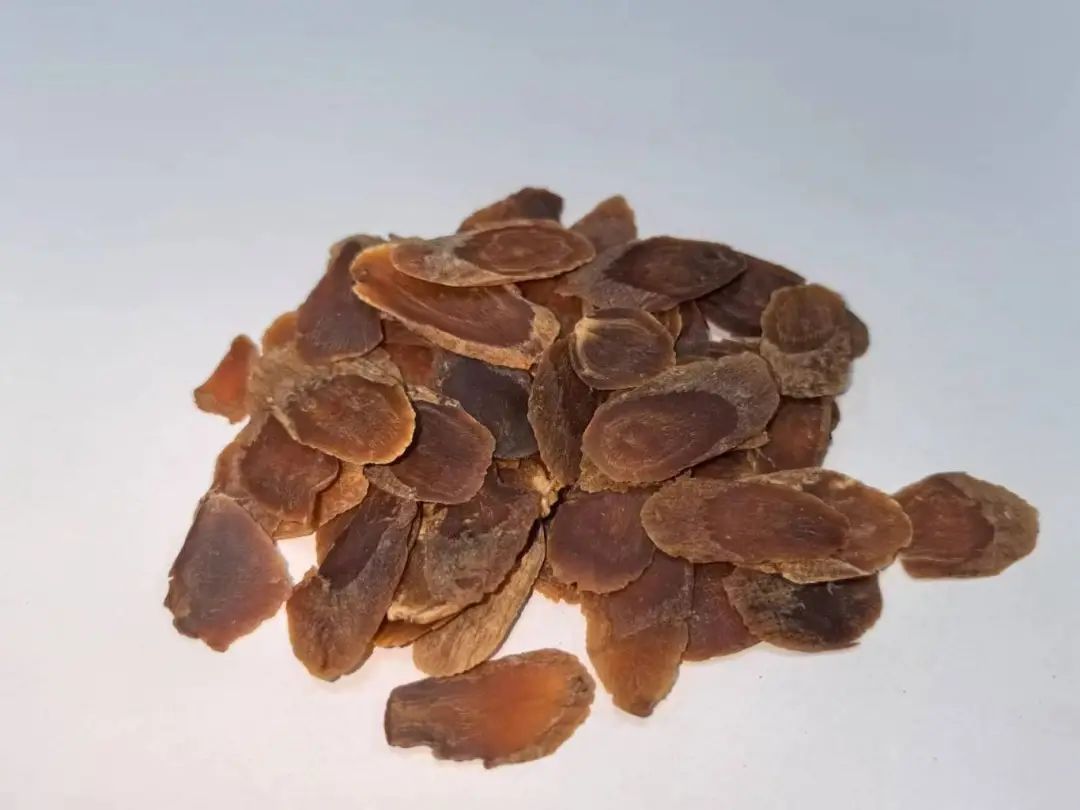
Greatly tonifies the vital energy, restores the pulse, strengthens the spleen and lung, generates fluids and nourishes the blood, calms the mind and enhances intelligence. It is used for symptoms of deficiency, desire to collapse, cold limbs, weak pulse, spleen deficiency with poor appetite, lung deficiency with cough and wheezing, fluid damage with thirst, internal heat with thirst, qi and blood deficiency, prolonged illness with weakness, palpitations, insomnia, impotence, and cold uterus.Ginseng root hairs: Red ginseng root hairs are most common, with properties similar to red ginseng but with milder effects.Raw sun-dried ginseng: Has a more neutral nature, neither warming nor drying, can tonify qi and generate fluids, suitable for strengthening the body and enhancing disease resistance.Wild ginseng: Has no warming or drying properties, greatly tonifies vital energy, considered the best among ginseng, but is rare and expensive.White ginseng (sugar ginseng): Has the most neutral nature, relatively mild effects, suitable for strengthening the spleen and lung.Red ginseng: Warming and tonifying. It tonifies qi with a strong warming nature, suitable for emergency revival. Dosage and Administration
Dosage and Administration
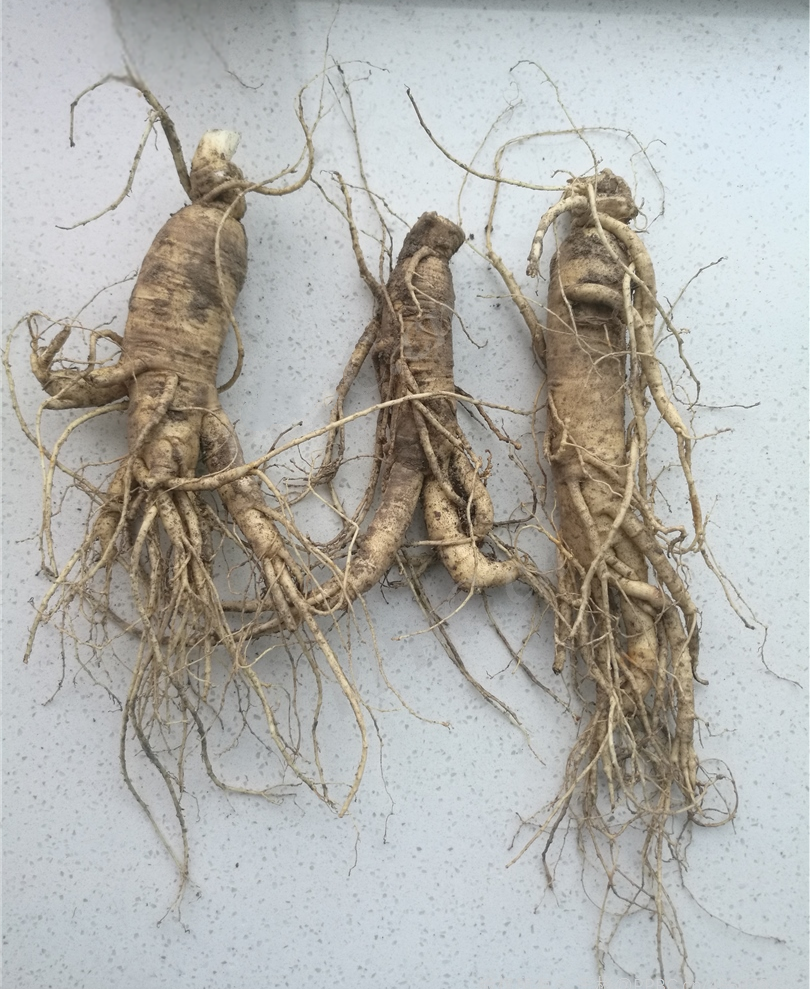
3 to 9 grams, decocted separately; can also be ground into powder and taken, 2 grams at a time, twice a day.
 Clinical Applications
Clinical Applications
- Deficiency with desire to collapse, cold limbs, weak pulse
This product is sweet and warm, can greatly tonify vital energy, restore the pulse, and is essential for rescuing from critical conditions. It is used for excessive sweating, vomiting, diarrhea, significant blood loss, or severe illness leading to extreme deficiency. Ginseng can be used alone in large doses for decoction, as in “Du Shen Tang” from the “Jing Yue Quan Shu”. For qi deficiency with a desire to collapse, often combined with Aconite to tonify qi and restore yang, as in “Shen Fu Tang” from the “Zheng Ti Lei Yao”. For heat damaging vital energy and qi-yin deficiency, it can be combined with Ophiopogon and Schisandra to tonify qi and nourish yin, as in “Sheng Mai San” from the “Nei Wai Shang Bian Huo Lun”.
- Spleen deficiency with poor appetite, lung deficiency with cough and wheezing
Ginseng is sweet and warm, entering the spleen, can “regulate the middle and tonify qi” and “harmonize the middle and strengthen the spleen”, making it a key herb for tonifying the spleen. It can be used for symptoms of spleen deficiency due to dietary fatigue, dampness obstructing the spleen, or excessive thinking. It is used to treat spleen qi deficiency, fatigue, poor appetite, and loose stools, often combined with Atractylodes, Poria, and Licorice, as in “Si Jun Zi Tang” from the “He Ji Ju Fang”.This product also enters the lung meridian, and is effective for tonifying lung qi. For lung qi deficiency, with weak cough, shortness of breath, low voice, and clear, thin phlegm, it is often combined with Astragalus, Schisandra, and Purple Aster, as in “Bu Fei Tang” from the “Qian Jin Fang”.
- Qi deficiency with fluid damage and thirst, internal heat with thirst
Ginseng can both tonify qi and generate fluids. It is used for heat illness with damage to both qi and fluids, with body heat, irritability, thirst, and dry mouth, often combined with Gypsum and Anemarrhena, as in “Bai Hu Jia Ren Shen Tang” from the “Shang Han Lun”. For diabetes, it can be combined with Ophiopogon, Asparagus, Pollen, Scutellaria, Anemarrhena, Licorice, and Lotus Leaf to tonify qi, generate fluids, and clear heat, as in “Er Dong Tang” from the “Yi Xue Xin Wu”.
- Qi and blood deficiency, prolonged illness with weakness
This product is sweet and can tonify qi to generate blood. For spleen qi deficiency, where qi cannot generate blood, leading to both qi and blood deficiency, it can be combined with Atractylodes, Angelica, and Rehmannia, as in “Ba Zhen Tang” from the “Rui Zhu Tang Jing Yan Fang”.
- Heart qi deficiency, palpitations, insomnia
This product enters the heart meridian, can tonify heart qi, calm the mind, and enhance intelligence. It is suitable for heart qi deficiency, palpitations, anxiety, chest tightness, shortness of breath, insomnia with vivid dreams, and forgetfulness, often combined with Astragalus, Poria, and Ziziphus, for heart and spleen deficiency, qi and blood insufficiency, often combined with Astragalus, Angelica, and Longan flesh to tonify qi and nourish blood, as in “Gui Pi Tang” from the “Ji Sheng Fang”. For heart-kidney disharmony, yin deficiency with blood deficiency, it can be combined with Rehmannia, Angelica, and Ziziphus to nourish yin and blood, as in “Tian Wang Bu Xin Dan” from the “She Sheng Mi Po”. Precautions for Use
Precautions for Use
- Avoid with Rhizoma Veratri.
- Contraindicated in cases of excess syndrome, heat syndrome, or when the righteous qi is not deficient.
- Long-term use of ginseng (1 month to 2 years) may lead to ginseng abuse syndrome (10%), primarily manifested as elevated blood pressure, throat irritation, euphoria, irritability, elevated body temperature, rash, bleeding, morning diarrhea, and edema; a minority of patients may exhibit depressive symptoms.
 Ginseng Dietary Recipes
Ginseng Dietary Recipes
- Fresh Ginseng and Astragalus Black Chicken/Pork Rib Soup
【Ingredients】1 piece of fresh ginseng, 10 grams of Ophiopogon, 5 grams of Astragalus, 200 grams of black chicken/pork ribs.【Method】Add 20 small bowls of water, 1-2 milliliters of vegetable oil, 1 green onion, and 3 slices of ginger, bring to a boil over high heat, then simmer for 2 hours, add salt to taste, drink the soup and eat the meat.【Effect】Tonifies qi and generates fluids. Suitable for qi deficiency, dry skin, and post-illness weakness.
- Fresh Ginseng and Longan Black Chicken/Pork Rib Soup
【Ingredients】1 piece of fresh ginseng, 10 grams of Solomon’s Seal, 10 grams of Longan flesh, 6 red dates, 200 grams of black chicken/pork ribs.【Method】Add 20 small bowls of water, 1-2 milliliters of vegetable oil, 1 green onion, and 3 slices of ginger, bring to a boil over high heat, then simmer for 2 hours, add salt to taste, drink the soup and eat the meat.【Effect】Regulates qi and blood, beautifies the skin. Suitable for those with poor sleep, forgetfulness, and vivid dreams.
- Fresh Ginseng and Goji Berry Black Chicken/Pork Rib Soup
【Ingredients】1 piece of fresh ginseng, 10 grams of Morinda, 15 grams of Goji berries, 200 grams of black chicken/pork ribs.【Method】Add 20 small bowls of water, 1-2 milliliters of vegetable oil, 1 green onion, and 3 slices of ginger, bring to a boil over high heat, then simmer for 2 hours, add salt to taste, drink the soup and eat the meat.【Effect】Increases endurance and resists cold. Suitable for those with low energy, decreased sexual function, and cold sensitivity.
- Fresh Ginseng Stewed Duck
【Ingredients】1 piece of fresh ginseng, 1 duck, 250 grams of pork backbone.【Method】Clean the duck, cut it into four pieces, clean the pork backbone, blanch both, and set aside. Place the duck, pork backbone, and fresh forest ginseng in a stewing pot, add Shaoxing wine and fresh broth, and simmer for 2 hours, adding salt and MSG to taste.【Effect】Suitable for general consumption, especially for those with heat, fire, weakness, poor appetite, constipation, and edema.
- Fresh Ginseng and Gastrodia Pigeon Soup
【Ingredients】2 pieces of fresh ginseng, 20 grams of Gastrodia, 5 red dates, 1 pigeon, ginger slices, salt, MSG, chicken powder, and cooking wine to taste.【Method】Clean the pigeon, remove the internal organs, and cut it in half. Blanch the cleaned pigeon in boiling water and set aside. In a pot, bring water to a boil, add fresh forest ginseng, ginger slices, and cooking wine, and simmer for 2 hours until the pigeon is fully cooked, adding salt, MSG, and chicken powder to taste.【Effect】Nourishes blood, benefits the kidneys, opens the meridians, strengthens the brain, dispels wind and detoxifies, suitable for elderly individuals and students who often use their brains.
- Fresh Ginseng and Ganoderma Lucidum Soup
【Ingredients】15 grams of Ganoderma, 20 grams of red dates, 24 grams of Goji berries, 1 piece of fresh forest ginseng (50 grams), 300 grams of pork ribs, salt to taste.【Method】Soak the Ganoderma and other herbs in 6000 milliliters of water for about 10 minutes, place in a cloth bag, tie it, then add the pork ribs, and simmer for 3 hours. Remove the bag, add salt to taste, and serve 250-300 milliliters per serving, eating the meat and drinking the soup.【Effect】Tonifies qi and nourishes blood, beautifies the skin, promotes black hair, refreshes and invigorates, strengthens the spleen and opens the appetite.
- Ginseng Tranquil Tea
【Ingredients】3 grams of ginseng, 3 grams of Polygala, 3 grams of Acorus, 3 grams of Poria, 3 grams of flower tea.【Method】Brew the decoction of ginseng, Polygala, and other herbs to make tea, drinking until the flavor is mild.【Effect】Tonifies heart and spleen qi, calms the mind, and stabilizes the will. Used for heart and spleen qi deficiency, with dreams and fright. END
END
Address of Qianxinan Prefecture Traditional Chinese Medicine Hospital:36 Hunan Street, Xingyi City
Outpatient Phone:0859—2237878 2218139
Consultation Phone: 0859—2299999
Source: Pharmacy Department
Editor: Wang Jian, Li Xiao
First Review: Yuan Hong
Second Review: He Qiaoxin
Third Review: Chen Guizhu
 Long press to scan the QR codeFollow the hospital service accountAppointment, registration, payment, report retrieval, medical record copying
Long press to scan the QR codeFollow the hospital service accountAppointment, registration, payment, report retrieval, medical record copying Long press to scan the QR codeFollow the hospital subscription accountReal-time updates on hospital dynamics and information
Long press to scan the QR codeFollow the hospital subscription accountReal-time updates on hospital dynamics and information Sharing is a positive attitude towards life
Sharing is a positive attitude towards life

